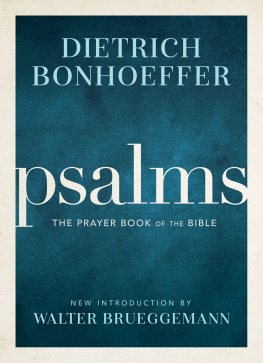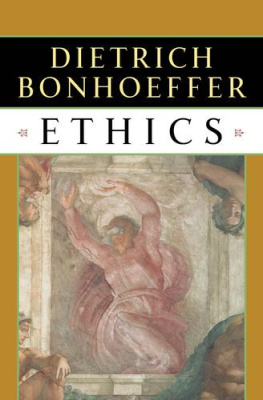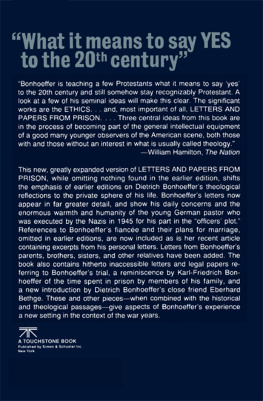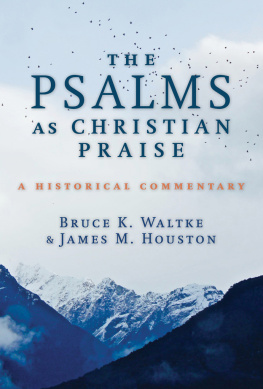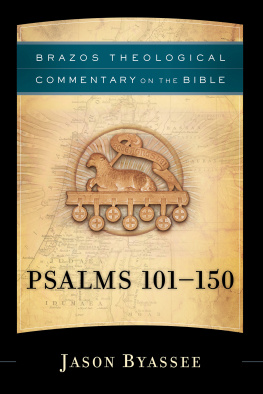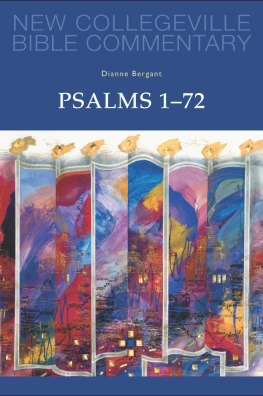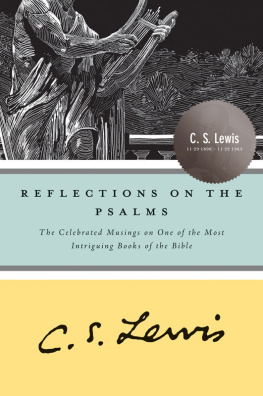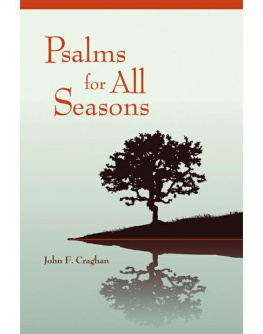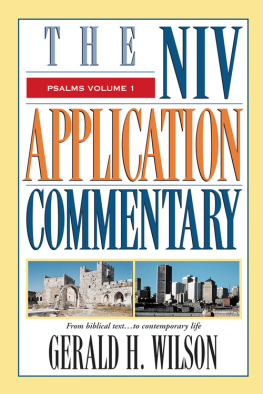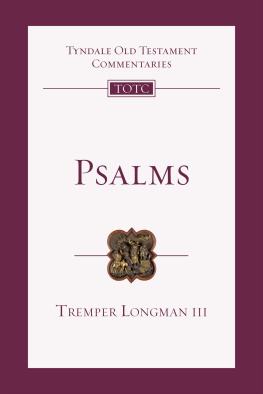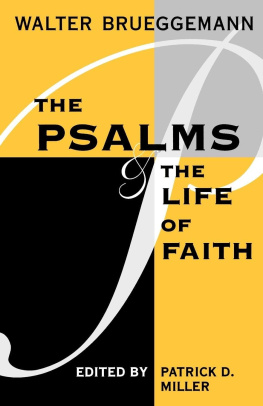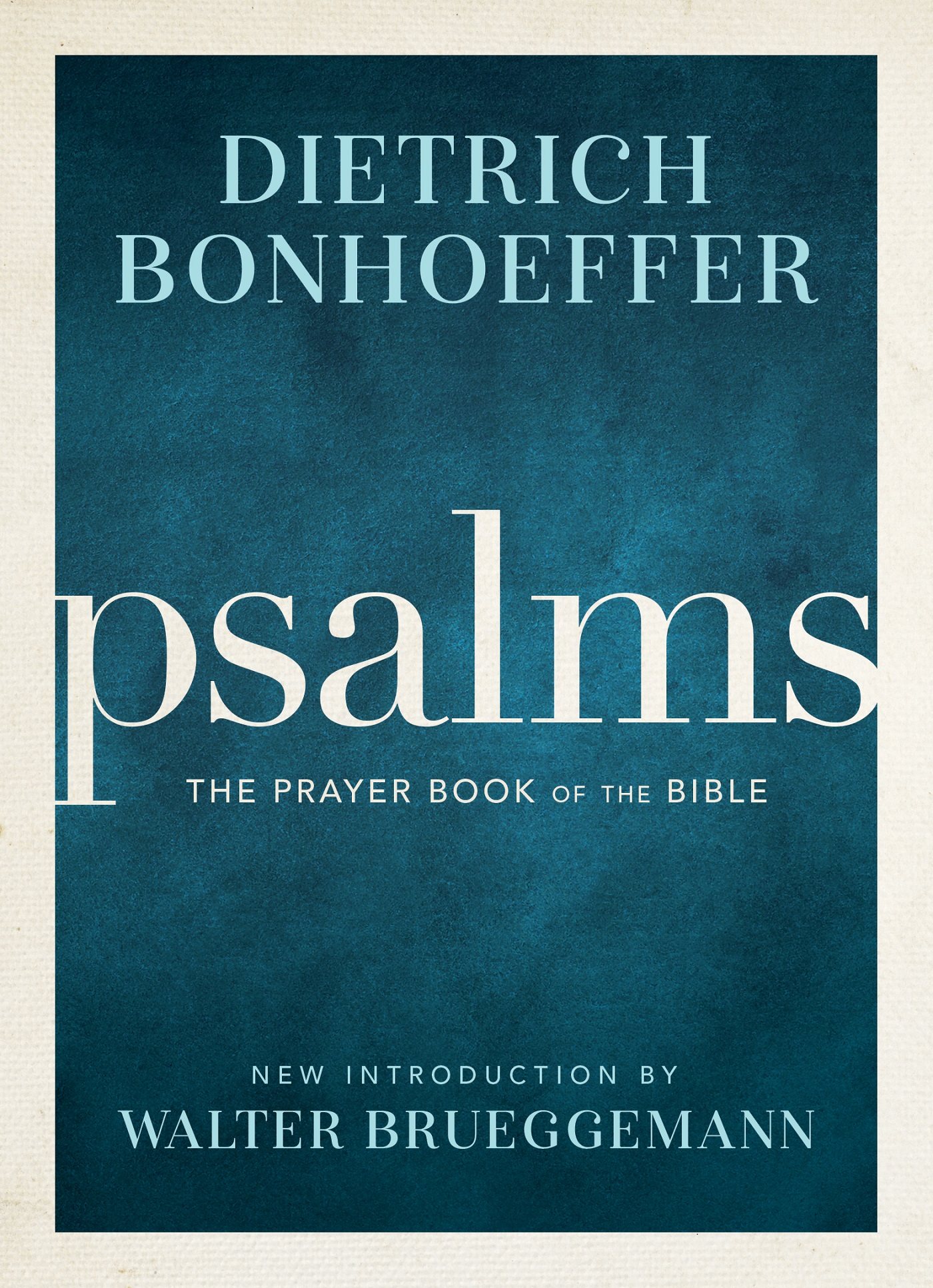
Psalms
Psalms
The Prayer Book of the Bible
Dietrich Bonhoeffer
New introduction by Walter Brueggemann
Broadleaf Books
Minneapolis
PSALMS
The Prayer Book of the Bible
Copyright 1970 Augsburg Fortress. First paperback edition, 1974. Printed in 2022 by Broadleaf Books, an imprint of 1517 Media. All rights reserved. Except for brief quotations in critical articles or reviews, no part of this book may be reproduced in any manner without prior written permission from the publisher. Email or write to Permissions, Broadleaf Books, PO Box 1209, Minneapolis, MN 55440-1209.
Translated from German by James H. Burtness
All Scripture quotations, unless otherwise indicated, are from New Revised Standard Version Bible, copyright 1989 National Council of the Churches of Christ in the United States of America. Used by permission. All rights reserved worldwide.
Scripture quotations marked (ESV) are from the ESV Bible (The Holy Bible, English Standard Version), copyright 2001 by Crossway, a publishing ministry of Good News Publishers. Used by permission. All rights reserved.
Scripture quotations marked (NASB 1977) are from the (NASB) New American Standard Bible, Copyright 1960, 1971, 1977 by The Lockman Foundation. Used by permission. All rights reserved. www.lockman.org.
Excerpts from the Psalms and The Lords Prayer in the chapters in this edition are selected and included by the publisher.
Cover design by Juicebox
Print ISBN: 978-1-5064-8019-0
eBook ISBN: 978-1-5064-8358-0
While the author and 1517 Media have confirmed that all references to website addresses (URLs) were accurate at the time of writing, URLs may have expired or changed since the manuscript was prepared.
Contents
In a life that ended much too soon, Dietrich Bonhoeffer played many roles. He was a bold theologian deeply rooted in Martin Luthers work, and he was a steadfast German patriot. He was a compelling theological teacher, and he was a daring witness for faith. He was, at the last, a resilient prisoner martyred for his single-minded political faith. In this brief, accessible volume, first published in German in 1940 and in English in 1974, we get access to a surprising capacity of Bonhoeffernamely, his pastoral sensibility. In this little book, he offers pastoral guidance for ordinary, serious Christians without any show of erudition or abstraction.
In this study of the Psalms, on the one hand, Bonhoeffer has no interest in or patience with the soupy spirituality often linked to the Psalter. On the other hand, he does not linger at all over the usual critical study of the Psalms, though he is of course completely familiar with that scholarly enterprise. In place of any generic spirituality or common scholarly analysis, he drives directly to the main point, which for him is always Jesus Christ. In this focus, he remains faithful to the work of Luther, who had invested great attentive energy in the Psalms.
The pivot point for Bonhoeffers reading of the Psalms is that we are among the disciples of Jesus who asked him to teach us to pray (Luke 11:1). Like those ancient disciples, we know a great deal about praying. But we also recognize that much of what we know about praying is inadequate for serious faith. Thus like Jesuss disciples, we seek to learn to pray in a way that is informed by and responsive to the rule of Christ in our lives. And of course Jesuss response to his disciples request is his offer of what we call the Lords Prayer (Matthew 6:913; Luke 11:14). That is Bonhoeffers starting point, as it is for Luther in his catechism. He follows the lead of Luther, who declares, It [the Psalter] penetrates the Lords Prayer and the Lords Prayer penetrates it, so that it is possible to understand one on the basis of the other and to bring them into joyful harmony.
This initial connection of the Lords Prayer and the book of Psalms provides the ground for Bonhoeffers exposition in what follows. The linkage for Bonhoeffer is accomplished through a recognition that the Psalms are the prayers of David, forerunner to Jesus. Bonhoeffer knows that David likely composed some of the Psalms but that he was not the author of the whole book. Bonhoeffer nonetheless opts for the traditional linkage so that it is as follows:
- 1. David prayed the Psalms;
- 2. Jesus prayed the Psalms after David; and
- 3. we pray the Psalms after Jesus, and with Jesus, and through Jesus.
So the Christ accent that we hear in the Psalms is not an abstract imposition. Rather, it is integral to our practice of faith. As a result, we do well to ask of every Psalm, How does this Psalm sound when we listen to it from the lips of Jesus?
Bonhoeffers understanding follows a series of themes; we may recognize that his themes are not far removed from the usual critical analysis of genres, though Bonhoeffer never uses such phrasing. Of the themes he explores, I note four of them that seem especially poignant for us. These four themes not only reflect Bonhoeffers instincts and concerns; they also pertain directly to our own contemporary engagement with the Psalm in our context.
First, Bonhoeffer recognizes that the Psalter is designed for both public liturgical and personal daily prayer. Thus at the center of his thinking is the community of the church. Given that reference point, Bonhoeffer takes up the Psalms that celebrate Jerusalem (Zion) and transposes those prayers toward the church. (The most familiar of these are Psalms 46 and 84.) The Psalms celebrate the church and focus on life situated in the church.
Second, with reference to the many Psalms of lament, Bonhoeffer comments on them under the theme of suffering. He follows Luther, who exclaimed, Where do you find more miserable, more wretched, more depressing words than in the Psalms of Lamentation? While the suffering attested to in these Psalms pertains to ordinary life, it pertains more particularly to suffering wrought in obedience to vocation. The latter, of course, is an accent especially pertinent to Bonhoeffers own life.
Third, Bonhoeffers interpretation of the Psalms finally comes down to hope: the Christian conviction that Gods will for life will prevail over every trouble we face. Bonhoeffer himself had deep confidence in this hope of Gods ultimate final rule, a confidence that gave him great freedom for the risky enactment of his faith. Bonhoeffer affirms, God is always already on the other side of death.... Therefore not death but life will triumph in the power of God. There is no chatter here about life after death. Rather, faith concerns the ultimate power and victory of God, an assurance that matters daily to the faithful.
Fourth, most difficult and most important, Bonhoeffer considers the Psalms of imprecation that concern passionate hostility toward ones enemies. Bonhoeffer has no wish to soften the fierceness of these Psalms. He sees them, however, as expressions of confidence in the faithfulness of God to establish Gods just rule in creation. Vengeance belongs to God, and in the power of Jesus, the thirst for vengeance is transposed to gracious forgiveness.
The sum of Bonhoeffers study is that the book of Psalms is converted from a collection of nice poems of spirituality to a vigorous articulation of faith. The daily practice of praying the Psalms thus cannot be simply a comfortable devotional exercise. Rather, it is the reframing of all of life toward the rule of Christ. And because of the demands of the gospel, the reframing is a daily requirement whereby we are equipped and empowered for a day of glad obedience.
Next page
